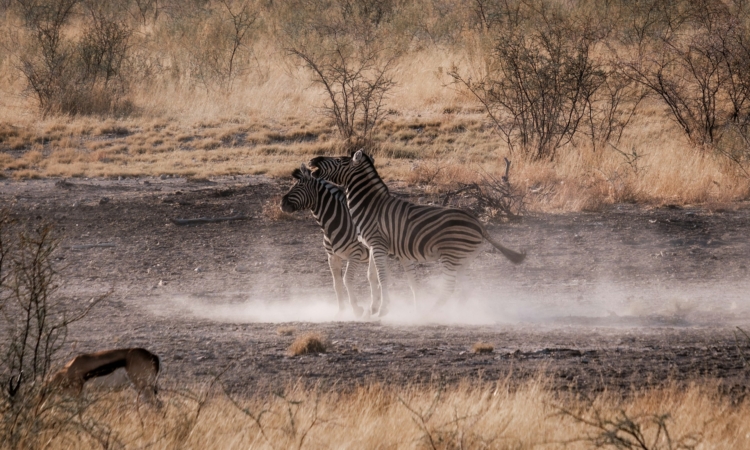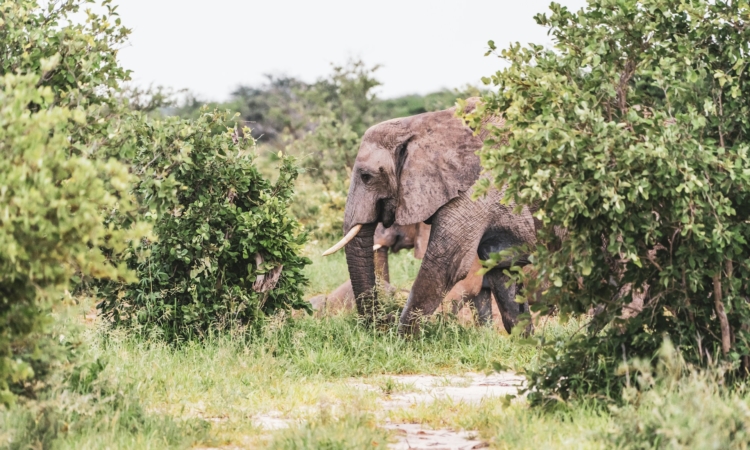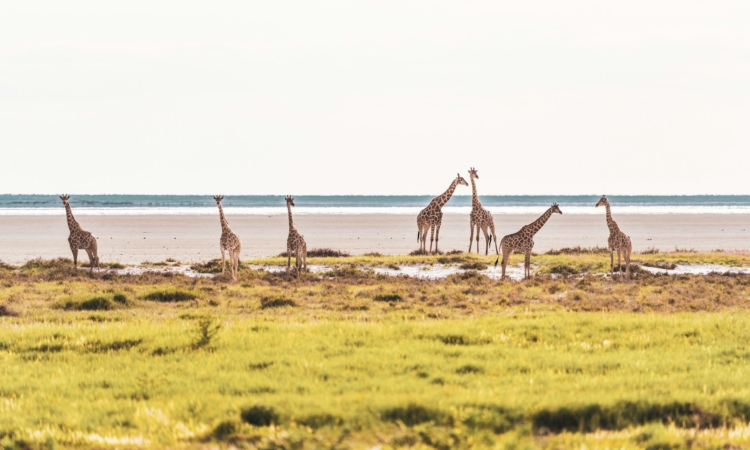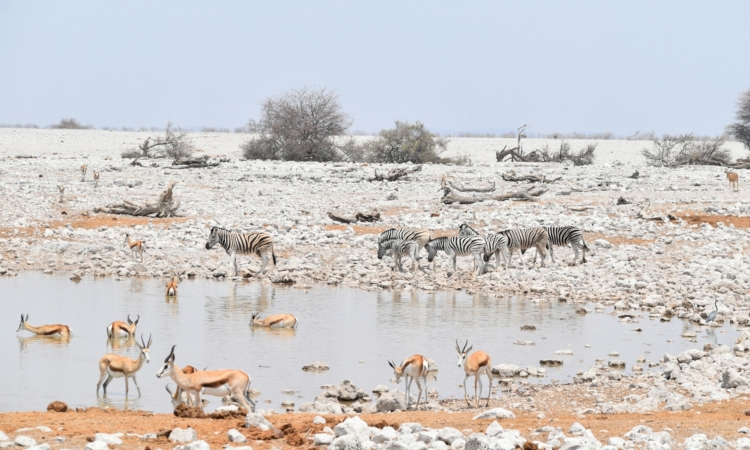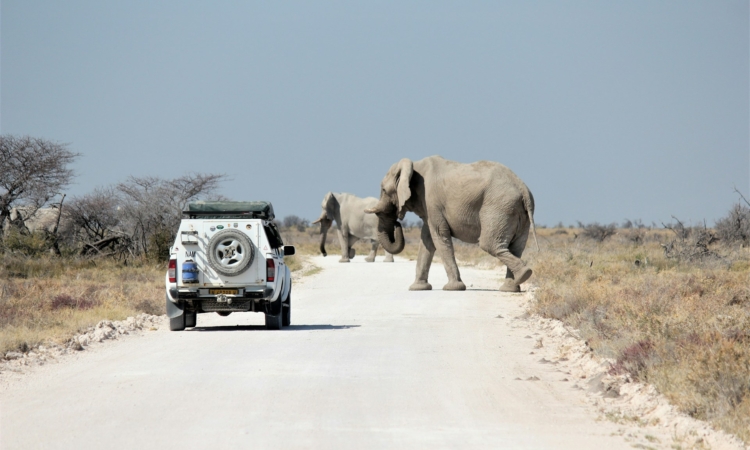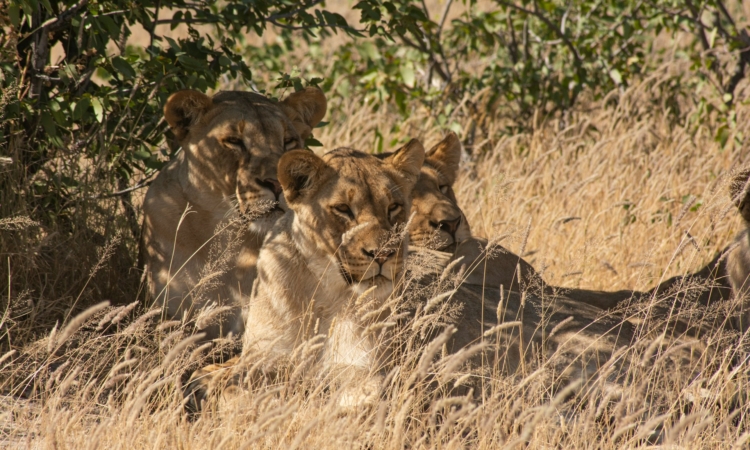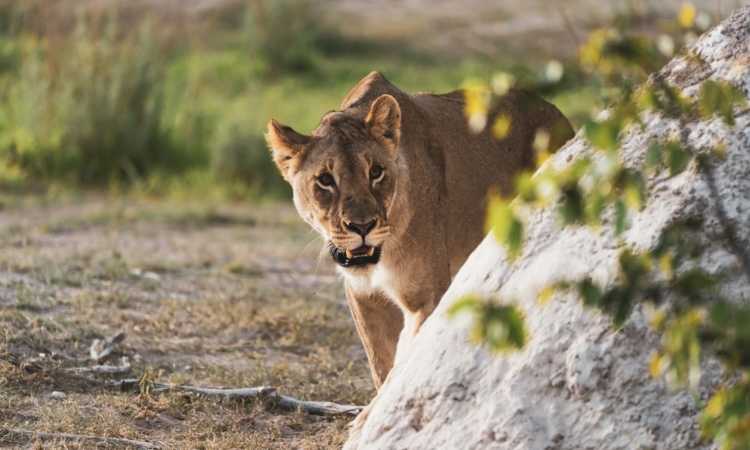Etosha National Park is found in northern Namibia. The word “Etosha” means “great white place” in the Ovambo language and refers to the Etosha Pan, a huge salt flat that lies in the middle of the park.
The park covers about 22,000 square kilometers, making it one of the largest national parks in both Namibia and Africa. It was first created as a wildlife reserve in 1907 and later became a national park in 1967.
Since then, it has been an important area for protecting animals and plants. Today, Etosha is home to more than 114 species of mammals, 340 species of birds, and many reptiles and insects, making it a popular destination for travelers who love nature and wildlife.
The most famous feature of the park is the Etosha Pan. This wide, flat, white surface is salty and dry for much of the year. However, during the rainy season, it collects water and turns into a shallow lake.
When this happens, the area attracts thousands of birds, including flamingos and pelicans, creating a seasonal highlight for visitors. The pan is so large, covering more than 4,800 square kilometers, that it can even be seen from space.
Although the salt pan itself cannot support much vegetation, the areas around it are rich in grasslands and mopane woodlands. These provide food and shelter for many animals, including giraffes, elephants, zebras, lions, and rhinos. Etosha is one of the few places in Africa where travelers can still see black rhinos living freely in the wild.
Another special feature of the park is its waterholes. Some are natural springs, while others are man-made to help animals survive during the long dry season. These waterholes are some of the best places to watch wildlife, especially when animals gather in large groups to drink. The main rest camps, Okaukuejo, Halali, and Namutoni, all have floodlit waterholes, giving visitors a safe way to view animals even at night.
Etosha is also well known for being self-drive friendly. The gravel roads are well marked, and the park offers a wide range of accommodation, from simple camping areas to comfortable lodges.

